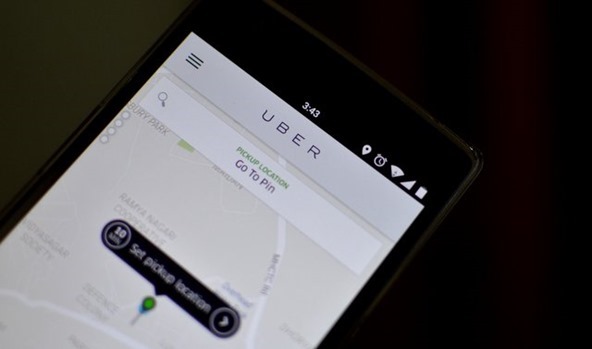Breather for Uber; Indian woman ends US lawsuit

Earlier in the year, a 27-year-old Indian woman had sued Uber in the U.S. alleging being raped by a driver from the taxi-hailing company in India. Now according to a court filing on Tuesday, she has voluntarily withdrawn her lawsuit.
Tuesday’s filing did not state whether there were any terms involved with the withdrawal of the lawsuit. Representatives for Uber and the alleged victim have declined to comment. We presume, it may very well be a case of out-of-court settlement (though we cannot confirm it in any way)
The woman had reportedly sued the company a month after the alleged rape and assault took place in Delhi. Her lawsuit said the company failed to provide adequate safety protocols. The alleged attacker, driver Shiv Kumar Yadav, was then arrested and he also confessed to the crime in just one week of interrogation by the Delhi Police. He is now waiting for trial in India.
Since its launch in San-Francisco as a startup, to becoming this multinational giant, it has come a long way. From one city to 295, and from a single country to 55, Uber’s journey has been at flying pace. With growth even came along controversies and criticism as the drivers were alleged of various crimes ranging from assaulting to raping and even kidnapping passengers.
After the alleged Delhi rape incident, the Delhi government placed a ban on Uber cabs. However, no ban has stopped Uber from coming back yet. However, It had resumed its services in January itself.
Since the rape incident, people were apprehensive about travelling in cabs. It had hence become very necessary for not just Uber but even its competitors to work upon their company’s safety assurance policies, to regain the lost faith amongst its user base.
So in an effort to address passenger safety concerns the company introduced a few new initiatives to improve passenger and driver safety. It announced the creation of a permanent global Safety Advisory Board to review the company’s safety practices, and of Incident Response Teams to be on call 24 hours a day and investigate and respond to “serious safety concerns.”
Uber tied up with Safetipin, a mobile safety app. It also introduced a real time SOS system for safer rides.
Uber CEO Travis Kalanick called the crime “horrific” and said the company would do “everything to help bring this perpetrator to justice,” but Uber was trying to play safe in the case, and shrugged responsibility in April pointing out to the clause in its agreement that read:
Uber does not guarantee the suitability, safety or ability of third party providers. It is solely your responsibility to determine if a third party provider will meet your needs and expectations. Uber will not participate in disputes between you and a third party provider. By using the services, you acknowledge that you may be exposed to situations involving third party providers that are potentially unsafe, offensive, harmful to minors, or otherwise objectionable, and that use of third party providers arranged or scheduled using the services is at your own risk and judgment.
By this, it had become difficult for the victim to win the case anyway. But the allegations did defame Uber on the global platform.
“While the plaintiff undoubtedly can state a claim against her alleged assailant, she cannot state a claim against Uber US, which is the wrong party,” Uber wrote in its motion, saying that Yadav was working for Uber BV, a Netherlands-based overseas operation. “Nor does California law govern a dispute involving an alleged wrong committed by one Indian citizen against another Indian citizen, in India.”
